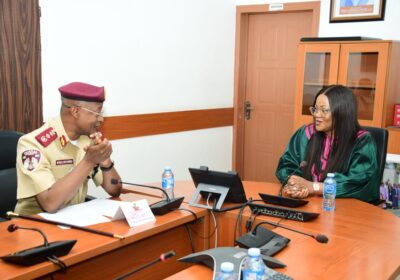Climate Justice Africa Magazine CEO Returns from COP30 with Urgent Call to Action
By Raymond Enoch
Climate Justice Africa Magazine Chief Executive Officer Joy Ify Onyekwere has returned from COP30 in Brazil, with what she describes as “renewed conviction and a deeper sense of urgency” given days of intense negotiations, emotional testimonies, and bold demands for climate justice in the heart of the Amazon.
Speaking after the conference, Joy Ify Onyekwere, Founder of Climate Justice Africa Magazine, told Paradigm News International that being in the Brazilian Amazon, a region that starkly reflects both planetary fragility and community courage — was a powerful reminder of what is at stake.
“Being in the Brazilian Amazon, a region that symbolizes both the fragility of our planet and the courage of communities defending it, reminded us why climate justice must remain at the heart of global climate action,” Onyekwere said.
From the cavernous plenary halls where world leaders reviewed progress under the Paris Agreement, to buzzing side-events led by grassroots movements.The delegation from Climate Justice Africa Magazine closely tracked how Africa’s concerns were framed, heard, and sometimes even sidelined.
Onyekwere recalled standing in the plenary as leaders “reaffirmed that the Paris Agreement is delivering progress, yet still far from the pace needed,” while small island states delivered “emotional testimonies of loss and damage” which drew murmurs of sympathy — but also questions about whether finance would follow.
“At COP30, we joined African negotiators calling for fair financing mechanisms that reflect the realities of our continent,” she explained. “This COP was not just another gathering, it was a statement of presence for Africa.”
“From young innovators to women-led enterprises, Africa showed resilience, creativity, and leadership,” Onyekwere said. “Climate Justice Africa Magazine was proud to document these stories, amplify these voices, and ensure that Africa’s lived experiences were reflected on the global stage.”
Beyond the formal negotiations, it was the pavilions and hubs that captured the soul of COP30 for Climate Justice Africa Magazine.
Onyekwere described the Youth Pavilion, Indigenous Peoples Pavilion and Africa Climate Hub as “vibrant reminders that solutions are already emerging from the grassroots.”
Inside those pavilions, climate justice was not an abstract term but a lived reality:
young people challenging fossil fuel expansion, indigenous leaders defending forests, and African practitioners demonstrating practical models for food security, energy transition, and nature-based solutions.
Yet, amid the energy and innovation, a sobering conclusion emerged.
“COP30 also revealed a glaring truth: climate commitments will remain insufficient without genuine collaboration,” Onyekwere warned.
While Belém produced a flurry of discussions on climate finance readiness, food security, green borders, energy transition and nature-based solutions, Climate Justice Africa Magazine fears that without tangible follow-through, many of these commitments may stay on paper.
“The conversations we heard must now translate into well-funded, well-planned, people-centered programmes across Africa,” Onyekwere stressed. “We cannot afford another cycle of promises without implementation.”
She issued a clear appeal to governments, development partners, private-sector leaders and civil society to stop working in silos.
“We call on all partners to work closely with African communities, not in parallel, but in partnership,” she said. “We need alliances that shift resources to where they are most needed, elevate local knowledge, support climate journalism, and protect the rights of those on the frontline of climate impacts.”
For Climate Justice Africa Magazine, COP30 was also an opportunity to sharpen its own mission: using journalism to bridge the gap between science, policy, storytelling and lived experience.
“We remain committed to providing a platform where science, policy, storytelling, and lived experience meet,” Onyekwere affirmed. “We will keep strengthening the narrative that Africa is not waiting to be saved; Africa is ready to lead, but leadership thrives when it is supported.”
From Brazil back to Africa, the Magazine CEO says it is carrying not just notes and interviews, but a mandate — to keep climate justice at the centre of the continental and global discourse.
“As we return from COP30, we carry forward the voices we heard, the lessons we gathered, and the collective hope shared across pavilions,” she said. “The work ahead is immense, but together — governments, institutions, journalists, youth, women, indigenous groups, and the private sector — we can accelerate climate action and secure a just, equitable future for all.”
In an era of escalating climate disasters, Climate Justice Africa Magazine’s experience at COP30 underscores a central message: Africa is no longer content to be portrayed as a passive victim of climate change — it is demanding, and demonstrating, a leadership role in shaping a just transition for the planet.









